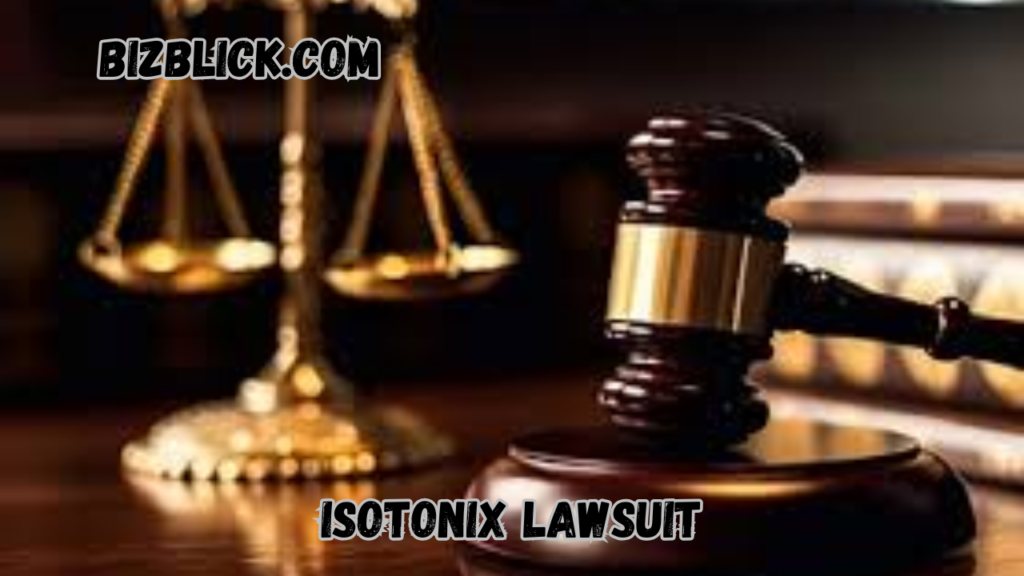The term “Isotonix lawsuit” refers to legal disputes involving Isotonix, a brand known for its range of dietary supplements and wellness products. Lawsuits of this nature often stem from issues such as product claims, marketing practices, or regulatory compliance. This article explores the background of Isotonix, the details surrounding notable lawsuits, and their broader implications for the dietary supplement industry.
Background on Isotonix
Isotonix is a brand of powdered dietary supplements that dissolve in water to create isotonic solutions. These products are marketed as offering superior absorption compared to traditional supplement forms like pills or capsules. The brand has gained popularity for its diverse product line, which includes vitamins, minerals, antioxidants, and specialized health formulas.
The company behind Isotonix emphasizes quality and efficacy, targeting consumers seeking health and wellness solutions. However, the dietary supplement industry is heavily scrutinized, often leading to legal challenges.
Key Issues in Isotonix Lawsuits
Lawsuits involving Isotonix typically center on the following areas:
- Product Claims: Allegations that the company’s marketing overstated the health benefits of its products, such as claims of curing or preventing specific conditions.
- False Advertising: Concerns that promotional materials misled consumers regarding the efficacy or uniqueness of the products.
- Regulatory Compliance: Issues related to FDA regulations, including proper labeling and approved health claims.
- Multi-Level Marketing Practices: Legal challenges related to the business model, which relies on independent distributors to sell products and recruit others, raising concerns about pyramid scheme allegations.
These issues are not unique to Isotonix but are common in the broader dietary supplement industry.
Notable Legal Cases
While specific details of lawsuits vary, some cases involving Isotonix have made headlines for their impact on the brand and the industry. Key examples include:
- Consumer Class Actions: Groups of consumers alleging deceptive marketing practices or unmet product promises.
- Regulatory Actions: Involvement of regulatory bodies like the FDA or FTC in addressing labeling or advertising concerns.
- Distributor Disputes: Legal conflicts arising from independent distributors regarding compensation, contracts, or business practices.
These cases often highlight the challenges of operating within a highly competitive and regulated market.
Implications for the Dietary Supplement Industry
The lawsuits involving Isotonix reflect broader trends and challenges within the dietary supplement sector:
- Increased Scrutiny: Regulatory agencies and consumer advocacy groups are closely monitoring product claims and marketing practices.
- Transparency Demand: Consumers are seeking clear, evidence-based information about supplement efficacy and safety.
- Evolving Regulations: Companies must adapt to changing laws and guidelines to maintain compliance and credibility.
- Reputation Management: Lawsuits can damage brand reputation, emphasizing the need for proactive risk management and consumer trust-building.
How Consumers Can Protect Themselves
To make informed decisions about dietary supplements, consumers should:
- Research Products: Verify claims through reputable sources and scientific studies.
- Check Certifications: Look for third-party testing and certification for quality assurance.
- Understand Labels: Review ingredients and consult healthcare professionals when needed.
- Be Skeptical: Question overly ambitious health claims that seem too good to be true.
These steps empower consumers to navigate the supplement market responsibly.
Conclusion
The “Isotonix lawsuit” narrative underscores the complexities of the dietary supplement industry, where innovation, consumer demand, and regulatory challenges intersect. While lawsuits can cast a shadow over a brand, they also highlight the importance of accountability and transparency in maintaining trust.
For consumers, the key takeaway is the importance of due diligence and informed choices when selecting health and wellness products. For companies like Isotonix, navigating legal challenges with integrity and a commitment to compliance is essential for long-term success.
